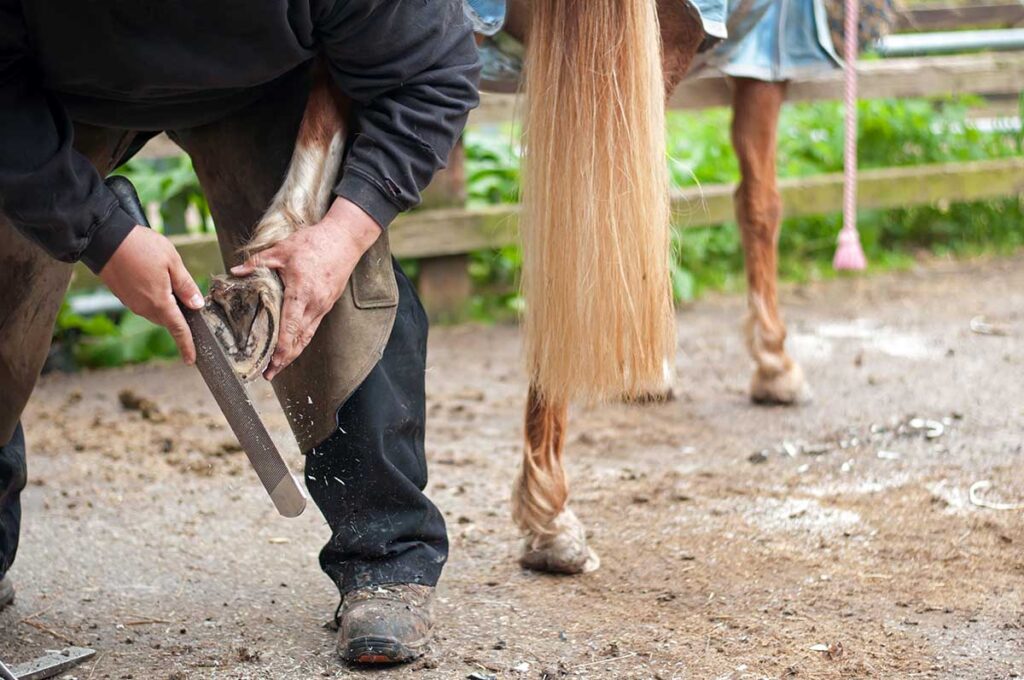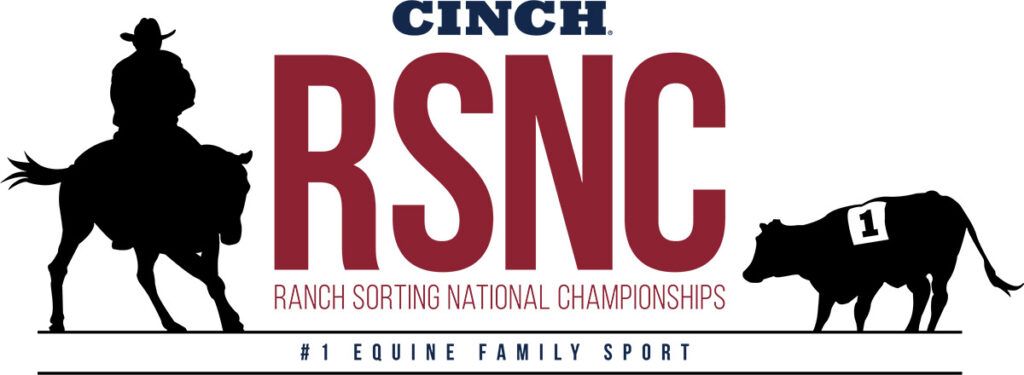Walk down the aisles of any horsey retail shop or flip through the pages of an equine magazine, and you’ll likely be overwhelmed by the number of feed supplement products claiming to fix your horse’s feet, coat, joints and attitude. Are you doing your horse a disservice by not supplementing his feed? And if you wanted to, where would you even start?
The safe and effective approach is to first identify your horse’s dietary needs and then shop for a supplement that meets them. The tendency to reverse this order is understandable. If your friend’s mare looks fabulous after being started on a particular supplement, for instance, it’s tempting to put your own horse on it. The mare, however, may have been missing something in her diet that your horse isn’t. In that case, you won’t see the same benefits. In fact, your horse may have a dietary deficit that only a different supplement can address.
Here’s a survey of the basic product categories available, along with a rundown of the ingredients you are most likely to find in each one. Once you’ve had a look, discuss your horse’s needs with your veterinarian so you can make informed decisions about your horse’s diet.
Calming Supplements

Which horses may benefit: those that are fractious or “difficult” even after a veterinarian has ruled out pain, ill-fitting tack and other physical problems that may lead to uncooperative behavior. Calming supplements are intended to “settle” these horses with nutritional and herbal ingredients that affect the nervous system.
Common ingredients:
- Magnesium, a mineral that plays a role in hundreds of biochemical reactions within the body, including muscle and nerve function.
- Thiamine (vitamin B1), a compound found in fresh forages that helps the body convert carbohydrates and fat into energy and is critical to proper function of the nervous system.
- Valerian, an extract of the dried root of the flowering plant Valeriana officinalis, which contains compounds believed to interact with certain neurotransmitters; used since the times of the ancient Greeks to relieve restlessness, anxiety and insomnia.
- Chamomile, an extract derived from the flowers of the perennial herbs Matricaria recutita or Chamaemelum nobile; used for thousands of years to treat insomnia and anxiety in people.
- L-tryptophan, an amino acid that is a precursor to the neurotransmitters serotonin, which induces calming, and melatonin, which encourages sleep.
- Taurine, the organic acid abundant in animal tissue that plays a significant role in many neurological functions.
- Inositol (vitamin B8), an organic compound integral to the health of cell membranes; research suggests that inositol supplementation can aid in treatment of panic disorders, bipolar depression and obsessive-compulsive disorder in people.
- Raspberry leaves, the dried foliage of the raspberry bush, which are high in vitamin C, tannins and other nutrients; long thought to affect muscle tone.
Special considerations: Many sport and show associations restrict the use of calming agents prior to competition. If you compete, check with your governing body for guidelines.
Joint Care Supplements

Which horses may benefit: those in the early to mid-stages of arthritis or otherwise at risk because of injuries, “mileage” or old age. Joint supplements aim to support the health of tissue, such as the cartilage between bones and the synovial fluid in the joint spaces.
Common ingredients:
- Glucosamine, an amino sugar, is one of the building blocks of cartilage production and repair.
- Chondroitin sulfate, a large protein molecule, is a constituent of connective tissue and cartilage
- Hyaluronan (hyaluronic acid), a key structural component of synovial fluid, connective tissue and cartilage.
- MSM (methylsulfonylmethane), is an organic compound that is a source of sulfur, which is necessary for the production of collagen.
- Yucca, an extract from the roots of a species of yucca, a flowering desert plant; a source of saponins, compounds with both antioxidant and anti-inflammatory properties.
- Avocado-soybean unsaponifiables (ASU), extract from the oils of avocado and soybean; early research suggests ASU slows the production of some inflammatory chemicals in the body, thereby protecting cartilage.
- Boswellia, an extract from the gum resin of Boswellia serrata, a tree native to India; research suggests that it has anti-inflammatory properties.
- Ascorbic acid (vitamin C), the familiar water-soluble vitamin and antioxidant; required for the synthesis of collagen and connective tissue.
- Resveratrol is a compound derived from the skin of red grapes that is believed to have antioxidant properties. Antioxidants protect cells against the effects of free radicals, helping to reduce the body’s inflammatory response. Research suggests that resveratrol dietary supplements can be beneficial to joint heath when used by themselves or in conjunction with joint injections.
Special considerations: The ingredients in joint supplements are among the most studied by scientists. However, the levels vary from product to product. Read and compare labels to select a supplement with the desired amounts of your preferred active ingredients.
Hoof Supplements

Which horses may benefit: those with weak, shelly hooves that crack easily and do not hold shoes well. Hoof supplements are formulated to improve the quality of hoof horn, leading to stronger hooves.
Common ingredients:
- Biotin, a B vitamin that supports the production of keratin, a protein that forms the basis for hair and hoof horn; studies have shown that biotin supplementation improves the growth rate and quality of hoof horn.
- Methionine, an amino acid that contains sulfur, an element the body uses to produce keratin.
- Lysine, an amino acid that plays a role in the formation of collagen, the absorption and retention of calcium, and tissue growth and repair.
- Zinc, a mineral essential to the formation and maintenance of cartilage, bone, skin, hoof horn and hair.
- Copper, a trace mineral critical to bone and hoof formation.
- Pyridoxine (vitamin B6), an organic compound essential for the production of amino acids that support hoof growth.
- Calcium carbonate, a mineral derived from eggshells and other sources that provides calcium.
- Calcium pantothenate, a compound of pantothenic acid, which is an essential component in the synthesis of amino acids used in hoof and hair production.
- Flaxseed (linseed), whole seeds or oil from the seeds of the flax plant; a source of omega-3 fatty acids thought to promote hoof growth.
Special considerations: It takes approximately one year for a horse to grow a new hoof from the coronary band to the ground. Because supplements can influence only new hoof growth, it may take many months to see results from these products.
Digestive Supplements

Which horses may benefit: those whose digestive system may be adversely affected by stress, illness or medications. These supplements aim to balance the flora in a horse’s intestinal tract, reducing the likelihood of colic and diarrhea.
Common ingredients:
- Probiotics, combinations of bacteria and yeasts, including Lactobacillus acidophilus, Lactobacillus subtilis and Enterococcus faecium, intended to support populations of intestinal flora that are necessary for digestion.
- Prebiotics, the sugars and other nutrients that provide nutritional support for the beneficial bacteria that reside in the gut.
- Yeast culture, a strain of yeast that assists in the activity of beneficial bacteria in the hindgut.
- Dehydrated alfalfa meal, a source of highly digestible fiber.
Special considerations: Many digestive supplements contain live organisms, which can be damaged or killed by exposure to heat and light. Read and follow the storage directions listed on their labels.
Skin and Coat Supplements

Which horses may benefit: those with dull, dry coats and/or flaky, greasy or itchy skin. Skin and coat supplements improve the quality of both by supporting the production of keratin, collagen and other building blocks of the coat and skin.
Common ingredients:
- Pyridoxine (vitamin B6), a compound essential for the production of amino acids that support hoof and hair growth; deficiency has been linked to skin inflammation and eczema in people.
- Biotin (vitamin B7), a compound that plays a key role in the production of keratin, a protein that forms the basis for hair.
- Flaxseed (linseed), the whole seeds or oil from the seeds of the flax plant; contains omega-3 fatty acids, which are thought to support healthy hair growth.
- Riboflavin (vitamin B2), a nutrient that aids in the production of healthy skin and hair.
- Lysine, an amino acid that plays a role in the formation of collagen as well as tissue growth and repair.
- Zinc, a mineral essential for the formation of bone, cartilage, hoof horn, skin and hair.
- Folic acid (vitamin B9), an organic compound necessary for the production and maintenance of new cells, particularly those with short life spans, such as skin cells.
- Calcium pantothenate, a compound of vitamin B5 and a critical component of an enzyme needed in the synthesis of amino acids used in hair production.
- Niacinamide, a derivative of niacin (vitamin B3), which preliminary studies suggest may be useful in treating skin disorders in people.
- Methionine, an amino acid that contains sulfur, an element the body needs to produce keratin; deficiencies in people can cause skin lesions.
Special considerations: Poor skin and coat quality can be indicators of overall nutritional deficiencies, parasitic infection or systemic illness. Before dismissing your horse’s dull coat as a cosmetic issue, check with your veterinarian to ensure that it doesn’t signal a bigger concern.
Choosing a Supplement
You’re in the feed store with a tub of joint supplement in each hand and four more on the shelf in front of you. How do you choose among several seemingly similar products in the same category? Follow these five steps:
- Read the label. Does it clearly list the ingredients, including amounts? Supplements are not regulated by the Food and Drug Administration (FDA) as medications are, but reputable manufacturers will have clear and thorough labels.
- Look for a lot number. These numbers allow a company to keep track of exactly what is going into each batch of product. It’s a sign of ongoing quality control.
- Find a phone number. Reputable companies will make it easy to get in touch with them. You may even want to get out your cell phone and call the number on a product’s packaging as you’re standing in the feed store and ask a few questions. The willingness of the manufacturer to talk to you can be as revealing as what they actually say.
- Compare prices. But keep in mind that cheaper isn’t always better. If the less expensive product makes appealing claims yet lacks a complete label and has no contact information, it may be a waste of money, not a bargain.
- Look for the National Animal Supplement Council (NASC) Seal of Quality. The NASC is a nonprofit organization of self-regulating suppliers dedicated to maintaining the quality of their products. To earn the right to display the seal, manufacturers must pass an independent quality audit, have a written quality-control policy, an adverse-event reporting system, and labels that include any warning statements recommended by the FDA and the NASC Scientific Advisory Committee for particular ingredients. To find a list of companies that meet NASC guidelines, visit www.nasc.cc.
Assess Your Horse’s Current Needs
Nutritional supplements can play an important role in keeping your horse healthy, but just because a product is appropriate and beneficial for him now, that doesn’t mean it will always be.
It’s a good idea to revisit your horse’s situation annually to determine whether his current supplement is still needed, or if he could benefit from a different product or formulation. In addition, there are three specific occasions that call for re-assessing your horse’s supplement needs:

Change in workload. A horse whose activity level has increased to that of “athlete” (think endurance racing rather than trail riding) may benefit from a dietary supplement. Hard-working horses might need additional micronutrients, more calories — which can be achieved with fat supplementation — or electrolytes if they will be sweating heavily in hot weather. Decreases in workload, however, seldom call for the addition of a supplement.
New diet. Many supplements are intended to fill in the “gaps” of a horse’s regular ration, so it stands to reason that when you alter your horse’s diet, you’ll need to revisit his supplement needs. For instance, switching from a straight grain diet (such as traditional rolled oats) to a complete feed may make a vitamin or mineral supplement redundant. On the other hand, if your new hay supply comes from an area with selenium-deficient soil, you may need to add that nutrient to hisration via supplementation.
New diagnosis. If your veterinarian has recently determined that your horse has a disease or another physical condition, you will want to discuss an appropriate care plan, which may include prescription medication, management changes, and support from the right supplement. The obvious example is arthritis — there are many supplements formulated to support joint health and a normal inflammatory response. Supplements can also help support the health of horses with several other health concerns. On the other hand, a horse’s newly diagnosed medical condition may necessitate removing a supplement from his diet. For example, a horse with hyperkalemic periodic paralysis (HYPP), for instance, must not be given any excess potassium.
Take-Home Message
Supplements cannot make up for poor management or nutrition, cure serious physical ailments or reverse the aging process, but they can make a big difference in a horse’s health, looks and performance. In fact, a supplement chosen carefully and with a clear purpose in mind can round out a horse’s diet for optimum health.
This article originally ran on EQUUSMagazine.com.








